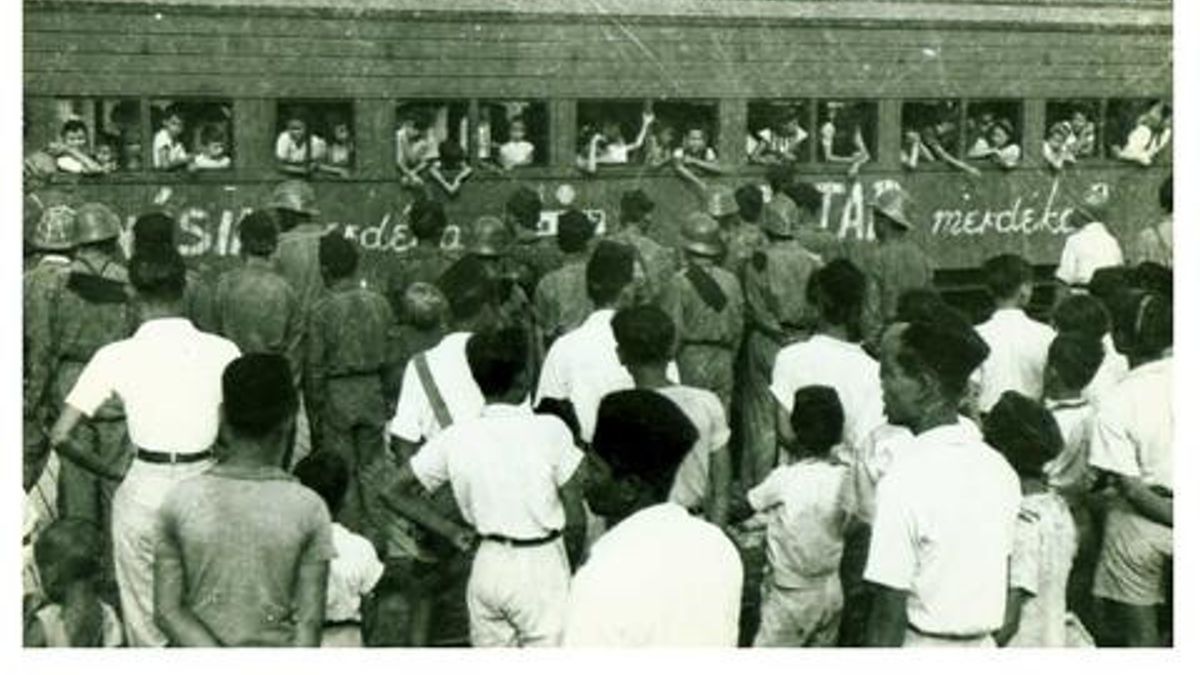JAKARTA History today, 81 years ago, April 11, 1942, Japanese colonialists required foreign nations in the archipelago to register for population. Japan is taking data collection steps so that foreign residents get a kind of Identity Card (KTP).
The effort was made by Japan as a form of recitation to raise the status of the bumiputras. Previously, Japan's presence was greeted with great fanfare by all natives. All because of the great support that Japan gave to Indonesia's independence.
The bumiputras never thought the Dutch colonialism would last forever. This assumption is due to the emergence of Japan as a savior in 1942. Dutch dreams of controlling Indonesia for hundreds of years have disappeared.
Japan immediately swept away all kinds of outdated Dutch war powers. Even the Dutch ran back and forth. The incident made the Bumiputras confident that Japan was a rescue country increase.
This support made the arrival of Japan greeted with great fanfare. Simpati to Japan also replied. The Bumiputras who incidentally hosted the status. The Bumiputras became first-class citizens. In fact, the status of the natives in the Dutch colonial era was only at the lowest strata.
The special treatment made many of the freedom fighters sympathize with Japan. Some of them chose to collaborate with Japan. The goal is clear. So that Indonesia can immediately realize the ideals of independence.
"The people hate the Dutch. Even more so because the Dutch ran away because they were castrated and let us be helpless. There was not a single Dutchman who tried to protect us or protect this country. They vowed to fight until the blood drop was complete, but in fact ran away from fear."
"The first factor that causes this spontaneous reception is the feeling of revenge against the Dutch master who has been defeated by the new conquest. If you hate someone, of course you will love the person who kicked him out. In addition, our arrogant and powerful white master is not shy about being shy about an Asian nation. No wonder the people welcome Japan as their freer," explained Soekarno in Bung Karno's book: Connecting the Tongue of the Indonesian People (2000).
Efforts to increase the status of the native people carried out by Japan were not half-hearted. This step was also supported by Japanese policies that took revenge for the natives by degrading the ethnicity of other nations in the archipelago. Mainly, the Dutch.
Whoever is not a native and Japanese, then they must register. The obligation was even signed through the rules issued by Japan on April 11, 1942.
Those foreigners who register will later get an ID card. Even then at very expensive costs. Moreover, then Japan began to get angry by placing Europeans - except for the German and Italians who became allies of Japan and the Dutch Indo to the internirense camp.
On April 11, 1942, the Japanese occupation government issued registration rules for foreign nations, namely Osamu Seirei No. 7. Through this rule Japan requires all adults aged 17 years or older, except Japanese and Indonesian natives, to register with the authorities.
So this rule applies to Europeans (including Indo) as well as the Foreign East (Chingoa and Arab). After registering they will get a resident card orGaikokujin Kyojuu Touroku Sensei Shoumeisho (a proof of registration for residences and oaths of foreign nationals). The registration rates are very expensive, according to ethnicity and gender, "said Daradjadi and Osa Kurniawan Ilham in the book Pejambon 1945: The Great Conceptus of the National Foundation (2020).
The English, Chinese, Japanese, Arabic, and French versions are automatically generated by the AI. So there may still be inaccuracies in translating, please always see Indonesian as our main language. (system supported by DigitalSiber.id)










